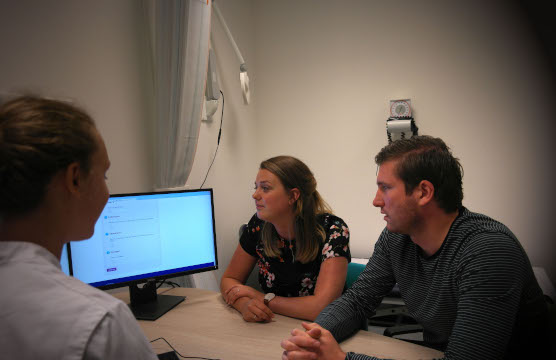Embryonic health
Many factors influence fertility and conception. On the one hand genetic factors of both mother and father and on the other hand external factors such as lifestyle and exposure to certain harmful substances in the mother and father's environment play an important role. This includes stress, smoking, drinking alcohol and working with chemical agents.
Approximately 14 weeks prior to conception, in the pre-conception period, the germ cells responsible for the genetic material (DNA) of the embryo are produced in both the female and male. Subsequently, after conception, many cell divisions and critical processes take place during the first 10 weeks of pregnancy that should lead to the construction of well-functioning fetal organs and the placenta. Exposure to harmful substances and an unhealthy diet and lifestyle affect these processes and can reduce the function of the placenta and fetal organs and thus slow down embryonic growth.
An embryo that does not grow well has an increased risk of pregnancy complications and health problems after birth, such as the development of cardiovascular disease and diabetes. There are also indications that poor embryonic health has consequences for the health of subsequent generations. To minimize these risks and consequences for several generations, striving for optimal embryonic health is therefore extremely important.
It is becoming increasingly clear that it is essential to have a good diet and healthy lifestyle as soon as a couple thinks about planning a pregnancy. By firstly ameliorating diet and lifestyle, the circumstances for the desired pregnancy and the unborn child are optimal. Providing good preconception care to achieve these optimal conditions is not only a task for care providers such as obstetricians and doctors, but also for you. By following the Smarter Pregnancy program we offer you extra support.


